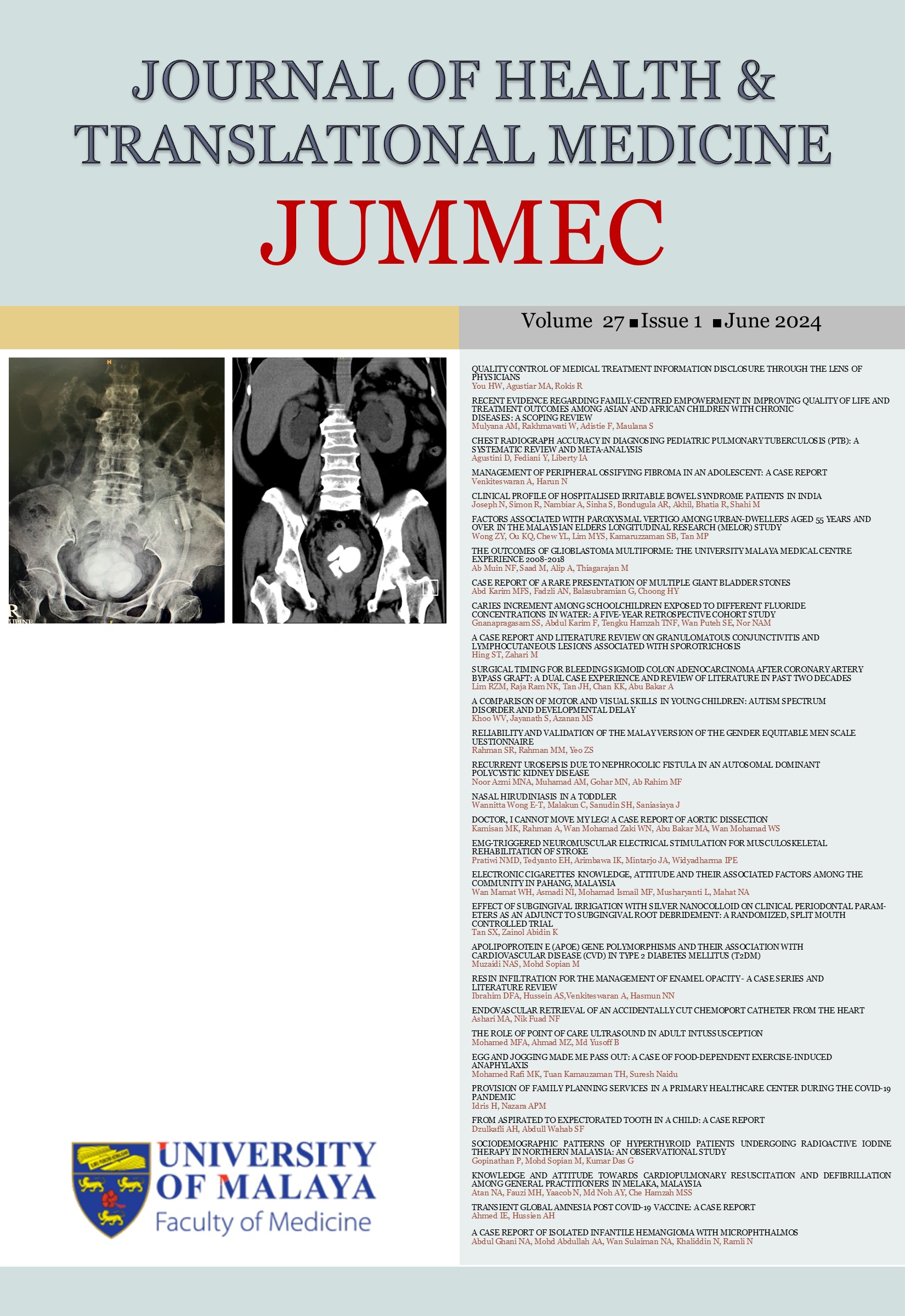KNOWLEDGE AND ATTITUDE TOWARDS CARDIOPULMONARY RESUSCITATION AND DEFIBRILLATION AMONG GENERAL PRACTITIONERS IN MELAKA, MALAYSIA
Received 2023-06-27; Accepted 2023-10-20; Published 2024-02-14
DOI:
https://doi.org/10.22452/jummec.vol27no1.28Abstract
The study focuses on assessing the knowledge of and attitude towards cardiopulmonary resuscitation (CPR) and defibrillation among general practitioners in Melaka. The aim is to understand the factors associated with their level of knowledge and attitude, as well as their preference for conventional CPR over chest compression-only resuscitation. The study utilised a cross-sectional design and employed a validated questionnaire for data collection. Convenience sampling was used to recruit general practitioners in Melaka, resulting in a total of 117 respondents. Among them, 77.8% had received training in Basic Life Support (BLS), while 58.1% had undergone Advanced Cardiac Life Support (ACLS) training. Interestingly, 84% of the respondents claimed to know how to handle an Automatic External Defibrillator (AED), but only 23.9% actually had an AED in their clinic. The study findings indicate that
those who were trained in BLS and had more than 10 years’ experience exhibited better knowledge regarding CPR and defibrillation. The statistical analysis confirmed a significant association between BLS training (P = 0.019) and years of experience (P = 0.006) and level of knowledge. In conclusion, the majority of general practitioners in Melaka demonstrated a good knowledge of CPR and expressed a positive outlook on defibrillation. The findings suggest that BLS training and longer professional experience are associated with higher levels of knowledge in CPR and defibrillation.
Downloads
Downloads
Published
Issue
Section
License
All authors agree that the article, if editorially accepted for publication, shall be licensed under the Creative Commons Attribution License 4.0 to allow others to freely access, copy and use research provided the author is correctly attributed, unless otherwise stated. All articles are available online without charge or other barriers to access. However, anyone wishing to reproduce large quantities of an article (250+) should inform the publisher. Any opinion expressed in the articles are those of the authors and do not reflect that of the University of Malaya, 50603 Kuala Lumpur, Malaysia.


